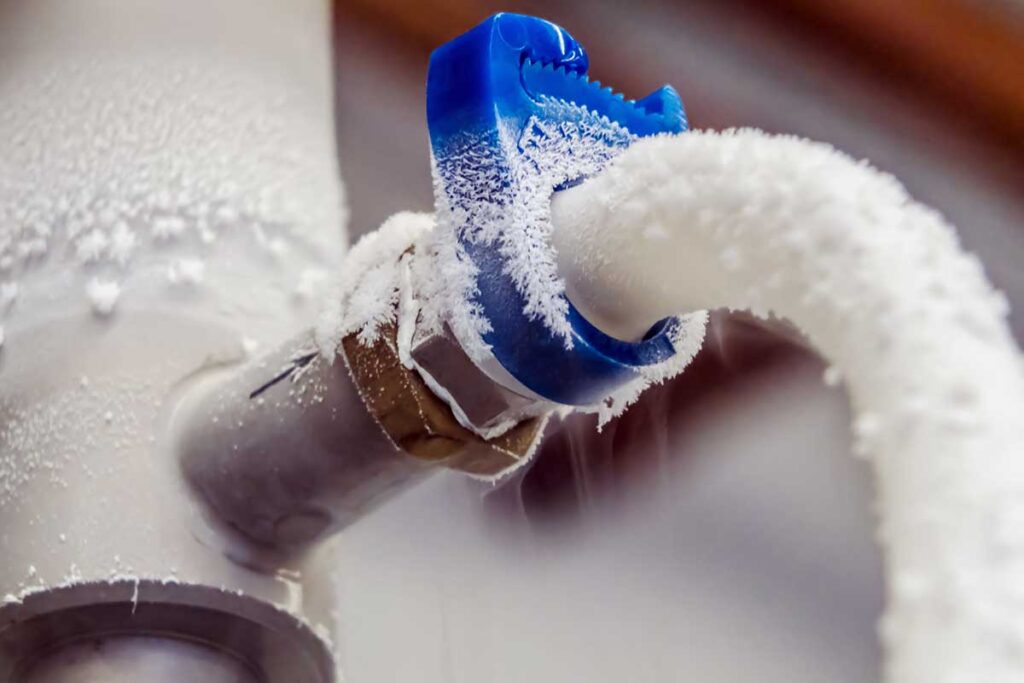How to Protect Your Pipes During a Winter Power Outage
It may feel like forever ago, but in 2013 Southern Ontario faced one of the worst winter storms in decades. This December storm complex came with turbulent and crippling weather, from tornadoes to ice storms, impacting nearly 1.5 million power stations across North America.
With temperatures well below zero, residential blocks without power, plenty of homes worried about their pipes freezing. But what can you do when every plumber is having their phones ring off the hook? Understandably, there is going to be a wait.
Well, with the right preventative measures, you can avoid burst pipes and the hefty plumbing and renovations bills that would follow. Let us look at all the steps you can take to ensure your home’s safety during an event like this.
Do This First Before Anything Else!
If your home is heated through a central water system, such as with a boiler, you will need to drain your radiators and pipes.
While the boiler itself is heated through gas, most systems will depend on an electric pump to circulate the water throughout your home. When not moving, this water can still freeze and cause permanent damage.
To have this done, you will need to call your heating company to request a technician to come to drain the system safely.
Are You Staying at Home?
Gas Powered Water Heater
If you remain home during a significant power outage you will need to assess if your hot water tank is operational. Many homeowners will find that they own a natural gas-powered water heater, which in case of a power outage, should remain operational.
In this case, you’re in luck, as you will be able to run hot water periodically throughout your home effectively mitigating the potential of frozen pipes.
Open the taps and flush your toilets every 1 to 2 hours (especially important in the basement) and allow hot water to flow for 10-15 minutes. It should be noted that these steps will have to be completed even at night.
Doing so will ensure that ice doesn’t build up inside your pipes and should help you avoid the hefty costs involved with repairing your plumbing.
Electric or Non-operational Water Heater
If you end up in this scenario, you will want to use up your hot water first. It is recommended to store water in buckets or large pots to save for drinking and flushing toilets.
Next, you will want to drain your water system as described below.
Decided to Stay Elsewhere?
It is not uncommon for those without power to visit close relatives to either stay with or use their amenities until a power outage has finished. In this case, it is recommended to drain your water system to avoid frozen pipes.
Draining Your Water System
- If you still have hot water, open all your taps and let it run for 10-15 minutes to warm up your pipes.
- Locate and turn off the water supply to your home (It can usually be found in your basement)
- Open all the taps, hot and cold, to start draining water from your plumbing system.
- Flush your toilets after your water has run for the appropriate time.
- After emptying your toilet to the best of your ability, open the tank at the top and pour antifreeze directly into your tank. As you pour, hold the flush lever down and allow for the antifreeze to enter other parts of your toilet to avoid freezing.
- Turn off your hot water tank to ensure it does not break during your leave.
- You can drain your hot water tank using the drain valve.
Before you leave your home, make sure to have all your taps closed. If you have a sump pump without a battery, it is recommended to remove valuables from your basement in case of flooding.
Need More Direction? How About a Professional
As you can imagine, there is a lot of work that goes into preparing your home for a long power outage and this amount of information can be overwhelming.
Luckily, the Plumbing Medic specializes in helping their clients. We can be there for you during emergencies and times of need. However, we’re not only there to fix your pipes. Our experts are trained to instill their wisdom so that you can be prepared for the worst.
Have a question? Get the answers from a Plumbing Expert today.

